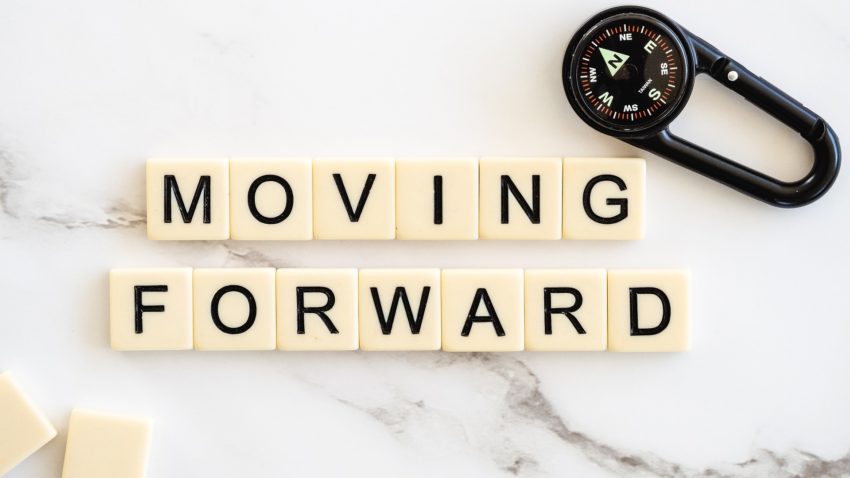
Full disclosure: I am an Adam Smith nerd. The picture above was the result of a long search that Mrs. C. and I went on when we were in Edinburgh, Scotland a few years ago to find the grave site of the Father of Free Market Economics.
First we had to find the correct cemetery. That part was not too hard, as it was well-marked and had a large memorial to Adam Smith at the entrance. But, then the search for his actual gravesite began. We searched through the various headstones, row after row after row after row. We knew it was in there, but could not find it. Finally, when I was about ready to give up, Mrs. C. said, “Here it is!” It was not the large, noble headstone I had imagined such an important icon would have. Instead, it was a grave marker no larger than the sole of a shoe.
Anyway, to understand why I am so fascinated by Adam Smith, I need to explain the two faces of Adam Smith.
The Adam Smith We All Know: The Invisible Hand
 The first, and most famous face of Adam Smith is that of the economist who first helped us understand the power of free markets in his book, The Wealth of Nations. In this work, Smith explains how the power of the “invisible hand” of the free market builds economies.
The first, and most famous face of Adam Smith is that of the economist who first helped us understand the power of free markets in his book, The Wealth of Nations. In this work, Smith explains how the power of the “invisible hand” of the free market builds economies.
Smith explains that individuals within free markets act by following what he calls commercial virtues. The first of these virtues is self-interest. By pursuing self -interest, individual entrepreneurs unknowingly benefit both the economy and society. However, this only works if the entrepreneur acts with the commercial virtues of prudence, justice, industriousness, and frugality.
The Adam Smith Most Don’t Know: The Importance of Virtue

Adam Smith was not only an economist, however. He was also a moral philosopher. His book, The Theory of Moral Sentiments, helps us understand the second face of Adam Smith. Smith recognized that the collective acts of self-interest by entrepreneurs in an economy must be moderated by nobler virtues, or the whole system will run amuck. Individuals must overcome the purely selfish impulses of the commercial realm, as there is more to life than economics.
The nobler virtues necessary for the free market to be sustainable, according to Smith, are benevolence, generosity, gratitude, compassion, kindness, pity, friendship, and love. These are not virtues commonly associated with free market capitalism, and yet without them, the individual selfishness leads to the eventual downfall of both the economy and society.
Bringing The Two Faces of Smith to Life
So why bring up the two faces of Adam Smith while we are in the middle of a pandemic and economic crisis?
Because even in the face of closed businesses and an economic free fall, we can see Adam Smith’s virtuous capitalism at work. And through the acts of entrepreneurs who bring the two faces of Adam Smith to life, we see hope for the future.
Kindness and Compassion
C19 Liberator is a charitable organization set up this past month to harness existing 3D printers to meet the demand for protective face shields to protect those on the front line of fighting the coronavirus here in Tennessee. One medical facility alone, needed 400 face shields, and needed them quickly. C19 Liberator has found small businesses and individuals who own 3D printers. They asked them to step up and meet the challenge of using 3D printers to make hundreds of face shields. They are donating them for use by medical personnel and first responders.
Generosity and Pity
One of the types of businesses that has been deemed essential and is able to remain open is liquor stores. One local liquor store, Cools Springs Wines & Spirits, has donated $25,000 to to Tennessee Action for Hospitality to help support other businesses that have been unable to operate during the current crises due to government mandates.
In an interview in Williamson Home Page, Cool Springs Wines & Spirits CEO Bret Moore says:
“We feel fortunate our store is open for business. In addition to taking extraordinary measures to create a safe environment for our employees and customers, we wanted to give back to those in our industry who are profoundly affected by this pandemic.”
Benevolence and Gratitude
Gravity Payments is a Seattle-based company that helps small businesses process payments. When the current pandemic and economic crisis hit, the impact on Gravity’s financial health was immediate. The company saw a 55 percent drop in revenues in one month. To survive, it first appeared that CEO Dan Price would either have to layoff 20 percent of his workforce, or face certain failure. Like many entrepreneurs, Price decided that neither option was viable and needed to find a creative “Plan C”. Price went to his employees and asked them to help him come up with a third alternative.
Each employee filled out a form that only the leadership team would see, in which they stated how much they could sacrifice in earnings to help avoid either a massive layoff or company failure. The plan worked, and everyone has been able to keep their jobs.
An Army of Virtuous Entrepreneurs
We are facing more than just the survival of individual businesses. Many experts are suggesting our economic system is in jeopardy. Let’s all remember the lessons of Adam Smith and create an army of entrepreneurs who not only can revitalize our economy, but ensure the preservation of free markets through benevolence, generosity, gratitude, compassion, kindness, pity, friendship, and love.



 Image by
Image by  (Photo source: Image by
(Photo source: Image by